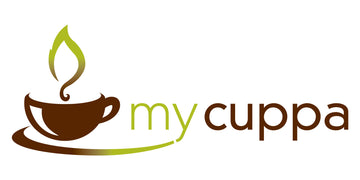Coffee Certifications – Fairtrade, Rainforest Alliance, and UTZ: Are They Failing Farmers?
For years, coffee certifications have promised ethical sourcing and fair treatment of farmers. Yet many programs—Fairtrade, Organic, Rainforest Alliance, and UTZ—have become marketing tools rather than genuine solutions.
Behind the logos and buzzwords, consumers and farmers are often left short‑changed.
The Rise and Fall of Fairtrade Coffee
-
Fairtrade is the most tightly controlled certification program, ensuring minimum prices for farmers.
-
Despite its noble mission, global adoption has declined.
-
Even the US branch broke away from the international program, creating confusion.
-
Premiums paid by roasters and consumers rarely deliver value or end up back where it's needed helping coffee farming communities.
-
In 2023, we ended our Fairtrade involvement after contradictions by FLANZ entering into strategic partnership with 7‑Eleven (charged twice over different years for systemic wage fraud). What a disgraceful situation allowing 7-Eleven to "wash" it's reputation clean.
Rainforest Alliance and UTZ – Hollow Promises
-
Rainforest Alliance (RFA) and UTZ merged, but the combined program remains weak, like a toothless tiger.
-
Certification requires only 30% RFA‑certified coffee in a blend—leaving 70% uncertified.
-
In Australia, RFA has no local auditing presence, relying on overseas paperwork.
-
Compliance is minimal, opening the door to abuse.
-
Big brands like McDonalds, Coles, Aldi, and Woolworths use RFA/UTZ logos as cheap credentials without meaningful impact. An easy solution to appearing "virtuous".
Direct Trade – Marketing or Reality?
-
Many coffee companies claim Direct Trade relationships.
-
In practice, these often amount to marketing spin and photo opportunities rather than transparent sourcing.
-
Without auditing or accountability, Direct Trade risks being as hollow as certification logos.
Why Certifications Fail Consumers and Farmers
-
Certifications provide corporations with a “get out of jail” card when challenged on sourcing.
-
Retailers push for the lowest possible prices, undermining farmer livelihoods.
-
Similar to Australia’s dairy industry, coffee farmers often face unsustainable pricing pressures.
-
Traceability is weak, and consumer advocacy is missing.
-
Programs risk becoming insurance policies for unethical practices rather than tools for reform.
The Bigger Picture – Corporate Convenience Over Ethics
-
Certifications suit a lazy corporate ethos: minimal effort, maximum gain.
-
Retailers secure cheap supply while projecting an image of responsibility.
-
Farmers remain trapped in cycles of poverty, with little benefit from premiums.
-
Consumers are misled into believing logos equal ethical sourcing.
Final Thoughts – Reform Needed
Coffee certifications must evolve beyond hollow promises. True ethical sourcing requires:
-
Transparent auditing and traceability.
-
Fair pricing that sustains farming communities.
-
Consumer education on what certifications really mean.
-
Accountability for corporations that exploit certification logos without genuine impact.
Until reform happens, certifications risk being more about marketing optics than farmer prosperity.









